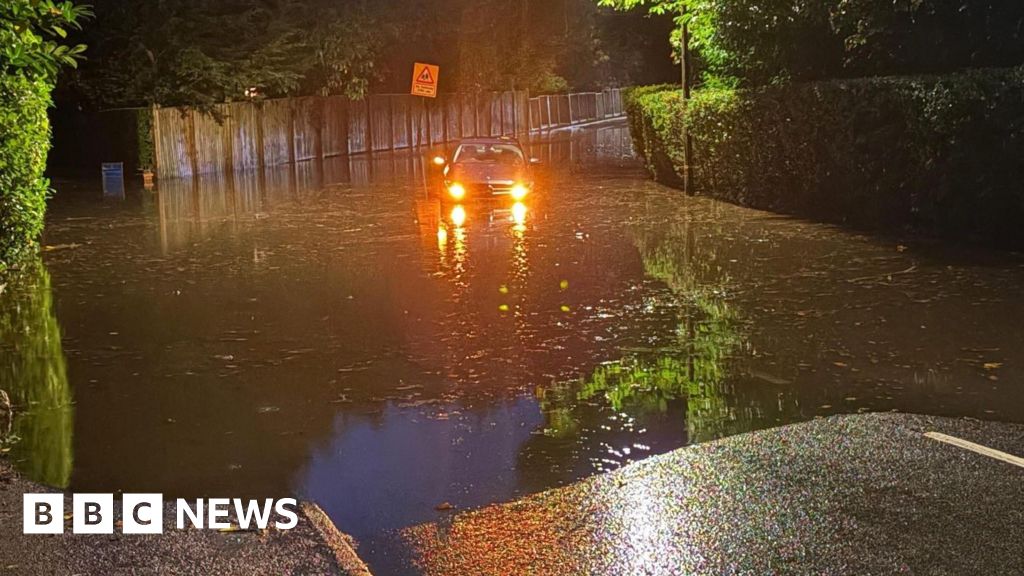India warned of “humanitarian consequences” after Donald Trump suddenly imposed a $100,000 charge on the H-1B visa, a programme heavily relied upon by Indian workers in America’s tech sector.
In a statement on Saturday, the Indian foreign ministry said New Delhi hoped the disruption caused by the president’s decision could be “addressed suitably” by the authorities in the US, adding that it was studying the full implications of the policy.
The proclamation, which came into effect on Sunday, sparked chaos for thousands of Indian professionals and their families who feared they would be unable to return to the US.
At the San Francisco international airport, where several Indian passengers on an Emirates flight disembarked just minutes before take-off, fearing they might not be allowed to return if they travelled out of the US. The flight was delayed for over three hours due to the sudden exits, according to Indian media.
Many H-1B holders shared stories online of rushing back to America, some just hours after landing abroad, fearing they would be subject to the new fee.
According to the Indian Express, there was a significant increase in last-minute flight bookings from India as H-1B visa holders scrambled to get back to the US before the order went into effect at 12:01 am eastern time on September 21.
The panic spread after tech companies such as Amazon, Microsoft, Meta and Alphabet warned their employees on H1-B visas to stay in the US or get back quickly.
The White House later clarified that the new fee applied only to fresh applications, not existing visas or renewals.
The clarification from the White House came a day after US secretary of commerce Howard Lutnick said the visa fee would be paid annually, and would apply to people seeking new visas as well as renewals.
Indians account for over 70 per cent of all H-1B visa holders. Last year alone, 285,000 of the almost 400,000 H-1B visas went to Indians – compared with just 12 per cent to Chinese nationals.
In Indian cities like Hyderabad, Bengaluru and Pune, where IT parks depend on the US work visa route, families described panic as rumours spread that those travelling back to India might be stranded.
The Indian embassy in Washington even established an emergency helpline for citizens facing difficulties.
Kathleen Campbell Walker, an immigration attorney in Texas, said in a LinkedIn post that the policy “inserts total chaos in the existing H-1B process with basically a day’s notice”.
The US Citizenship and Immigration Services later released guidance confirming the fee did not apply to anyone with a valid visa or an application already filed.
Telangana chief minister Revanth Reddy urged Indian prime minister Narendra Modi to treat the issue on a “war footing”, warning that the suffering of IT workers from his southern state in America would be “unimaginable”.
Opposition politicians accused Mr Trump of targeting Indians specifically. Congress MP Akhilesh Prasad Singh told ANI news agency: “The way they treat Indians shows they don’t want to see PM Modi or Indians at all.”
The US Chamber of Commerce has also voiced alarm, saying it was “concerned about the impact on employees, their families and employers”. It added that discussions with the administration were underway.
The H-1B scheme allows skilled workers – mainly scientists, engineers and computer programmers – to work in the US for up to six years. Critics in Washington, including Mr Trump, claim it is exploited by outsourcing firms, particularly in India, to undercut jobs for Americans. The president described the system as a “national security threat” when announcing the change.
The new fee, styled as a one-time payment to accompany each petition, could deter smaller firms from hiring foreign specialists. It also risks straining India-US relations even further amid an ongoing row over tariffs.
Analysts warn of consequences for America’s own economy. India supplies the bulk of the global IT outsourcing workforce, and sudden restrictions could disrupt everything from software development to banking services.





